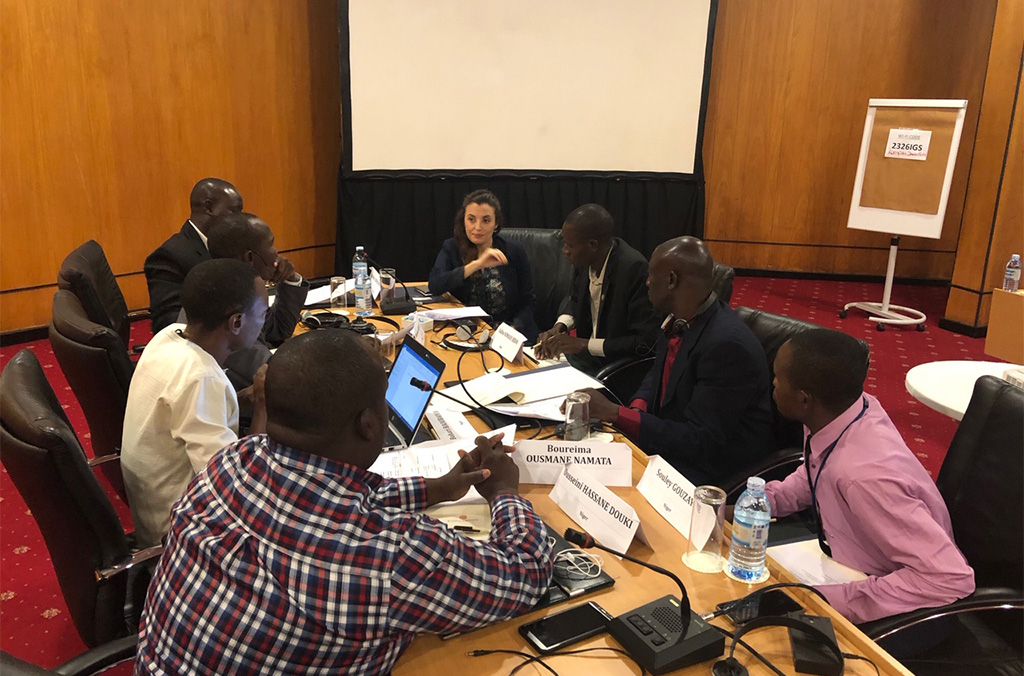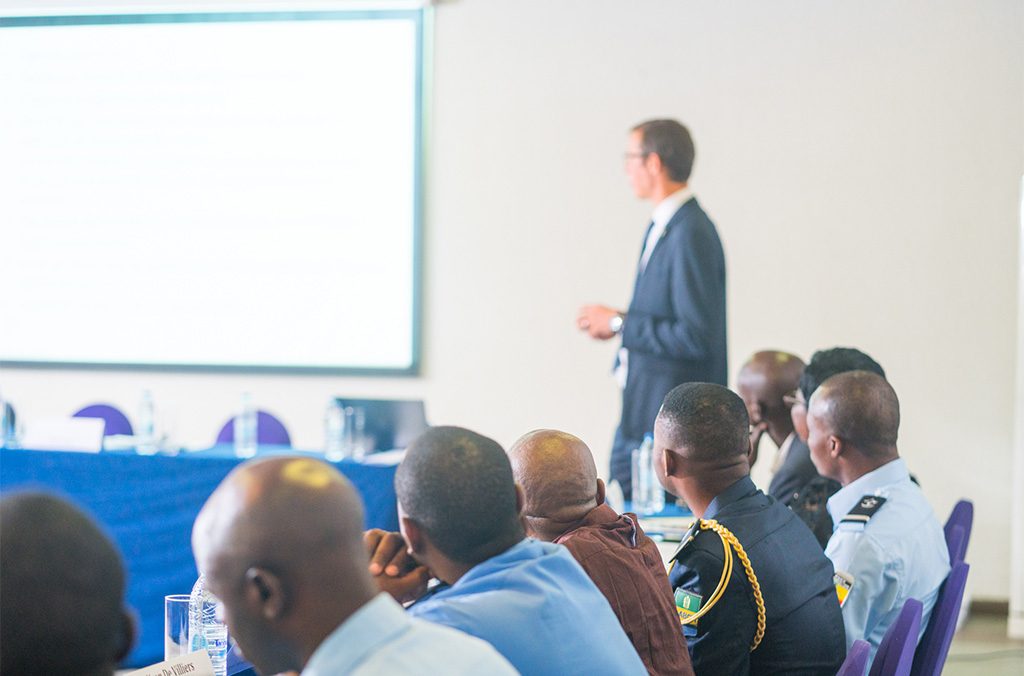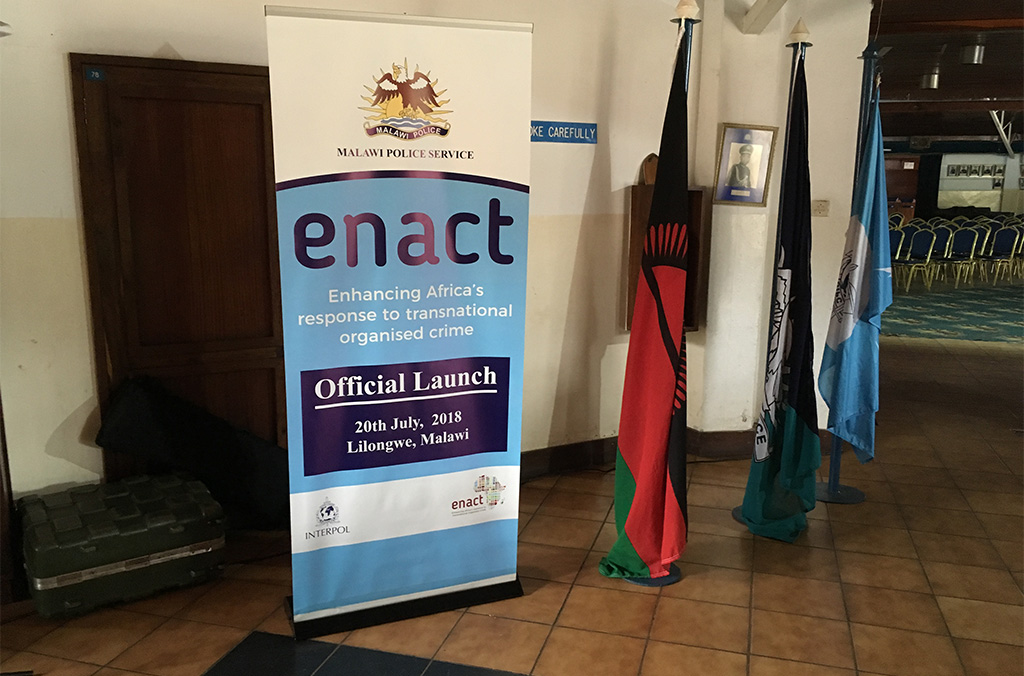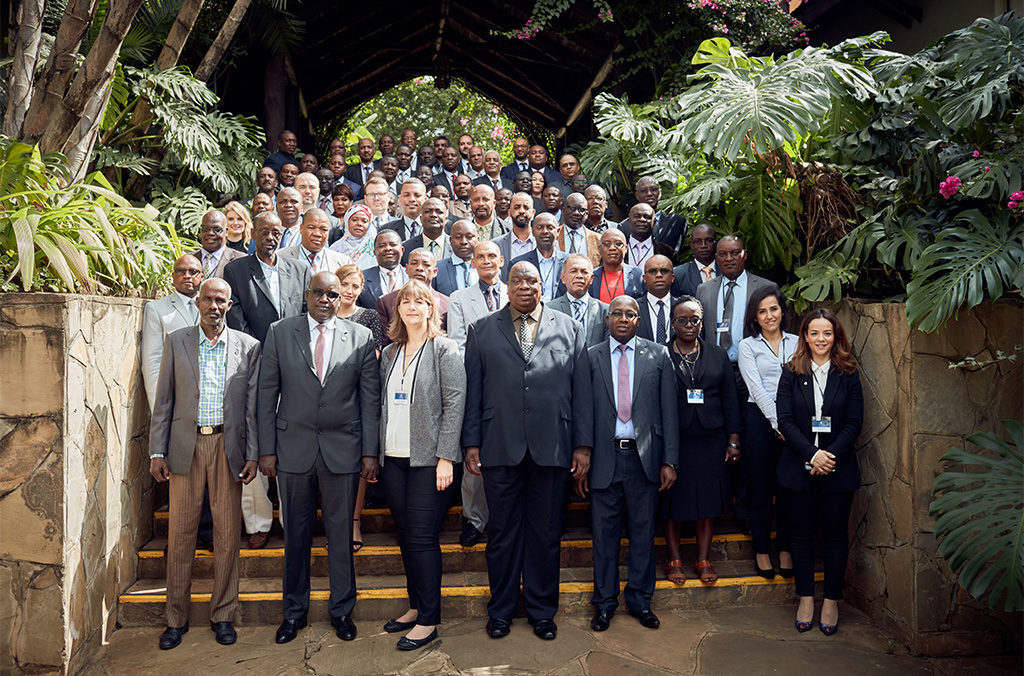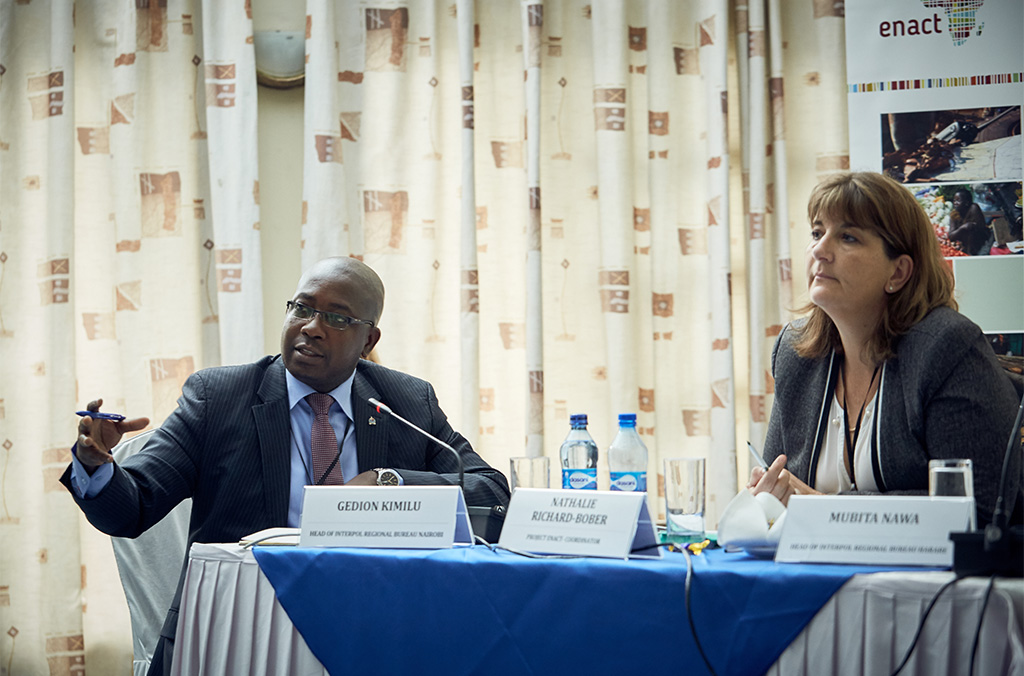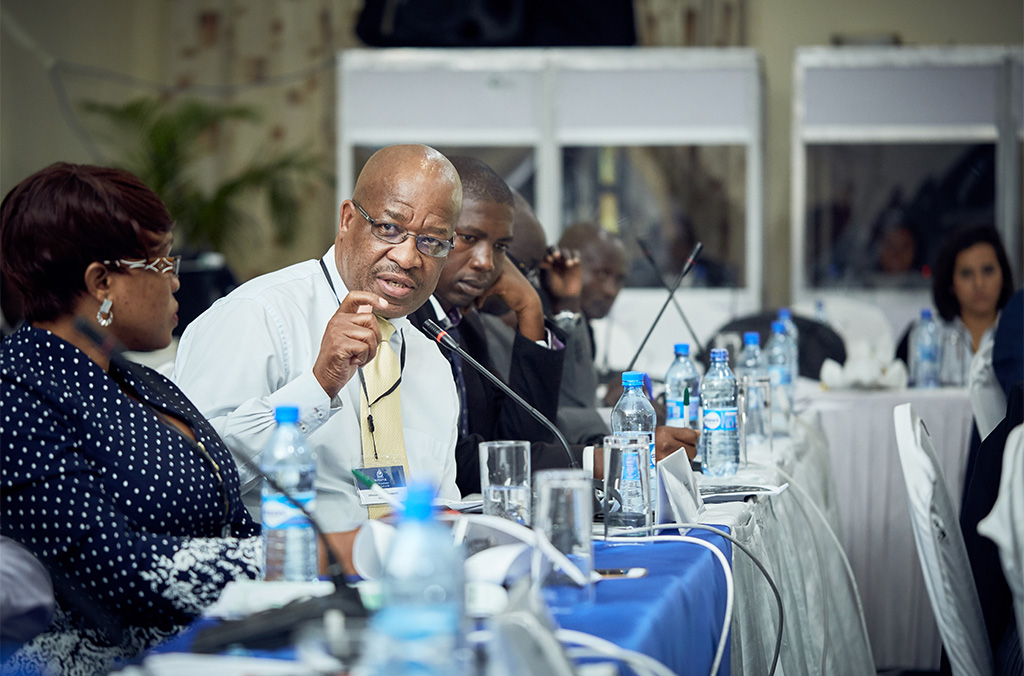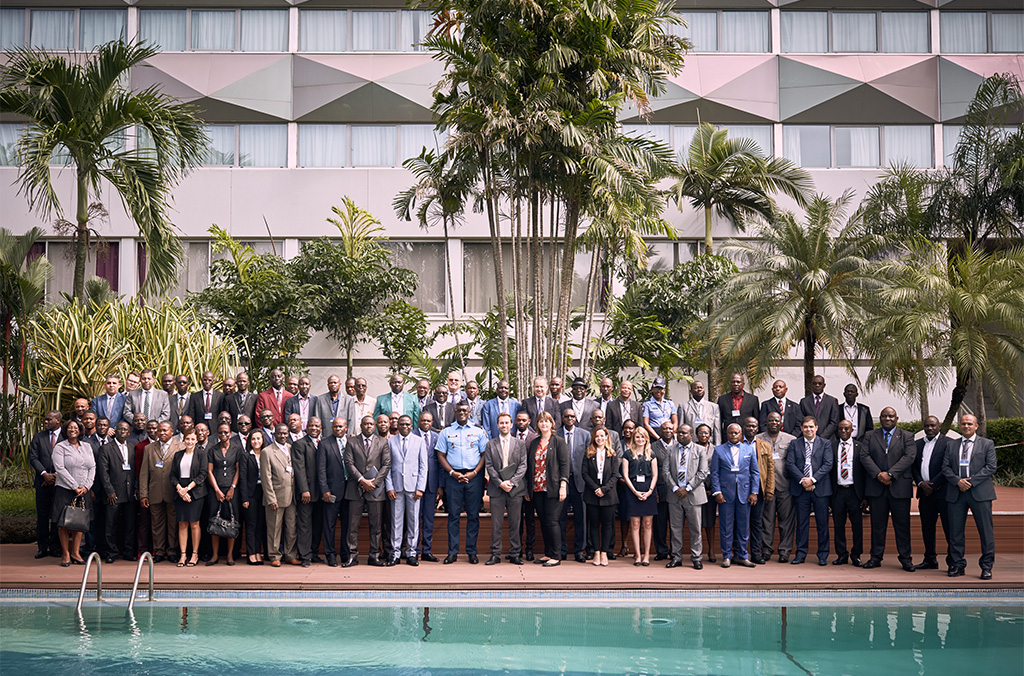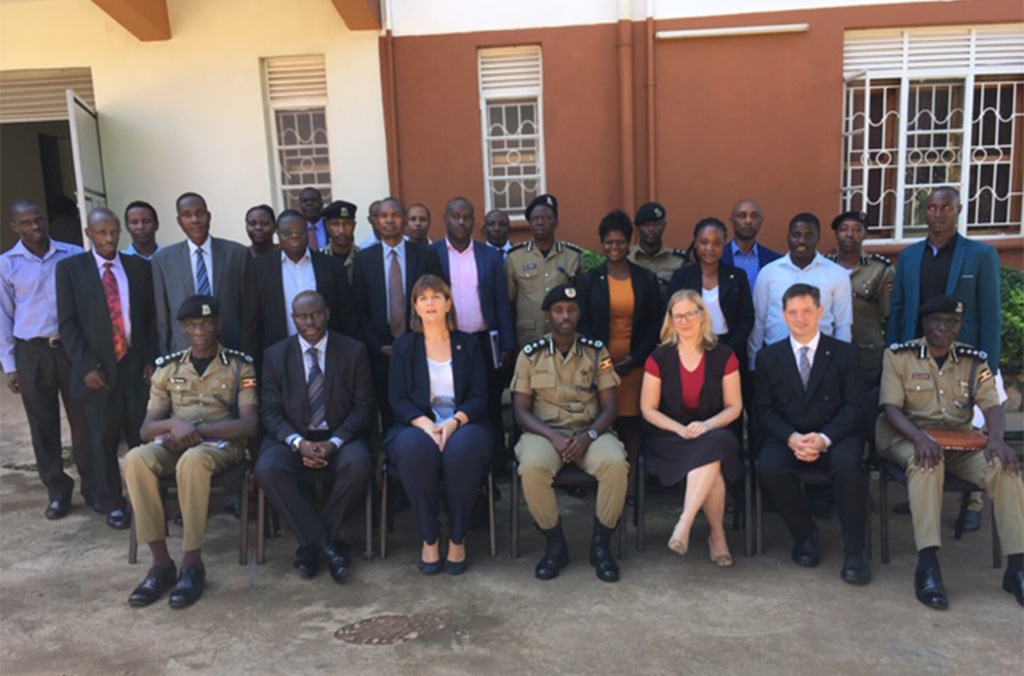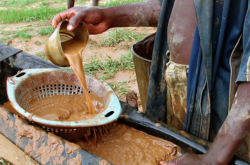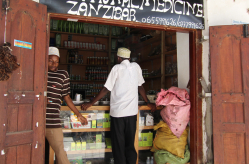Timeframe: 2017-2025
Budget: EUR 26 million for ENACT Consortium
Donors: European Union & French Ministry of Foreign Affairs and GFFO
Project aims
Project ENACT aims to mitigate the impact of transnational organized crime (TOC) in Africa on development, governance, security and the rule of law. It achieves this in two ways:
Firstly, by building knowledge and offering evidence-based analysis of TOC in Africa, which will inform policy and enhance cooperation at the regional and continental level.
Secondly, by building skills and capacity among key African stakeholders to better respond to transnational organized crime and mitigate its impact.
INTERPOL's role in the project is to assist police agencies in Africa to adopt proactive strategies to combat organized crime, improve investigations and exchange information. This factual analysis of the scale of organized crime and its impact on security, governance and development, serves as a basis for decision-making and strengthens cooperation at regional and continental level.
Project activities - key achievements
Strengthening analysis through capacity building
• 550 officers from 52 African countries trained;
• 5 IDC courses organized – 59 officers from 35 African countries are now INTERPOL certified trainers in criminal intelligence analysis;
• 3 conferences organized on the use of criminal intelligence analysis in the fight against TOC in Africa.
Raising awareness through analytical reports
To date, 21 strategic analytical reports have been written on transnational organized crime in Africa. Some of these evidence-based reports were used to draft crime prevention regional strategies or enable the publication of a purple notice on a new crime trend.
Sowing the seeds by establishing analytical units in Africa
There are now 10 analytical units opened in Africa; Congo, Côte d’Ivoire, Gabon, Malawi, Namibia, Niger, Senegal, Tanzania, Togo and Uganda.
Implementation of gender mainstreaming in intelligence analysis
The womENACTion initiative brings together female police officers from over 30 African countries on two virtual platforms hosted in French and English. It provides a conducive networking environment, enabling them to acquire knowledge on criminal analysis and TOC with many of them applying analytical skills in their current jobs. It also offers them a platform to discuss the gender-based barriers they face in criminal analysis or law enforcement in general. Selected policewomen benefited from an in-depth mentoring.
Analytical units
The establishment of analytical units in Africa is a tangible and long-term outcome of the project. The 10 analytical units opened in national police administrations with the assistance of ENACT, are now fully operational and have achieved concrete results, including contributing to dismantling criminal groups, identifying links between groups operating across borders or participating in drafting their national security strategy.
INTERPOL applies an integrated, turnkey approach to setting up analysis units that ensures long-term sustainability. It comprises specialist training for the police officers in the unit, providing computer and software equipment, and importantly, an active mentoring programme that extends throughout the project. This enables the units to be effectively monitored over an extended period, to grow gradually in strength and to take ownership.
The project has demonstrated that the teaching and deployment of proven and standard analysis methods in several countries ensures optimum quality and consistency of intelligence products. This contributes to building a coherent regional intelligence picture to support combatting transnational crime.
Analytical reports
Analytical reports give insights into specific types of organized crime in Africa, enabling law enforcement officers and decision-makers to devise the appropriate responses. They also help identify possible trends and connections between different crimes.
Examples of published reports as part of Project ENACT are:
Sex trafficking in women in West and North Africa and towards Europe (2025)
West Africa is a heterogenous region in terms of economic and social development, and stability. These imbalances provide a fertile ground for organized criminal groups to exploit vulnerabilities by developing a variety of lucrative activities. Trafficking in women for the purpose of sexual exploitation is a very profitable and low-risk crime for criminals.
Firearms trafficking in Western and Central Africa (2024)
Firearms trafficking is a major enabler for transnational organized crime, terrorism and the activities of armed groups. It fuels violence, exacerbates conflict, and supports an array of illicit markets, including trafficking in people and drugs, violent robberies and kidnapping.
Cocaine trafficking in Western and North Africa (2023)
The global cocaine trade is on the rise globally, driven by record production and growing demand. North and West African countries play an increasingly important role as transit points for cocaine flows destined for the European market and, to a lesser extent, the Middle East.
Project updates
April 2025 : Analytical workshop
Analysts from all the African ENACT units took part in the third analytical workshop and shared expertise on crime trends, and learned about Artificial Intelligence, Open source information and gender perspectives in analysis.
November 2024: womENACTion analytical boot camp
Representatives from 32 countries took place in this intense workshop in Mombasa, Kenya, under the womENACTion initiative. It aimed at empowering African female police officers through acquiring knowledge and skills on criminal intelligence analysis in a ‘learning by doing” four-day programme.
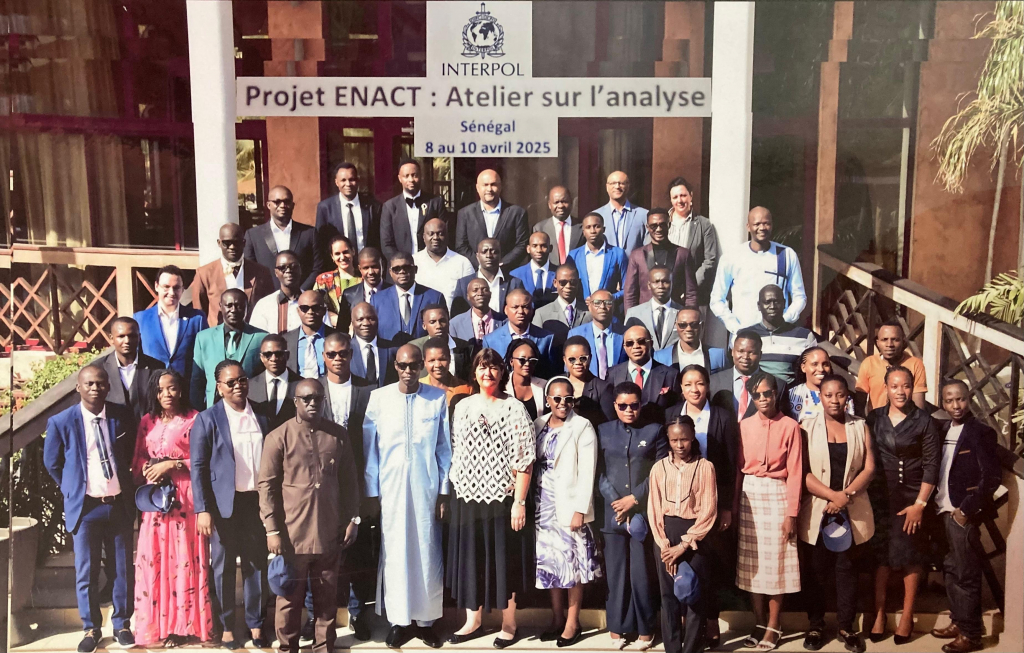
Related documents











